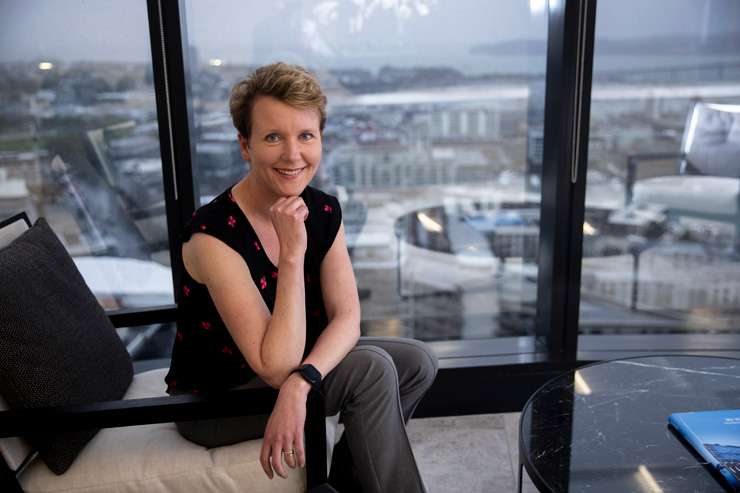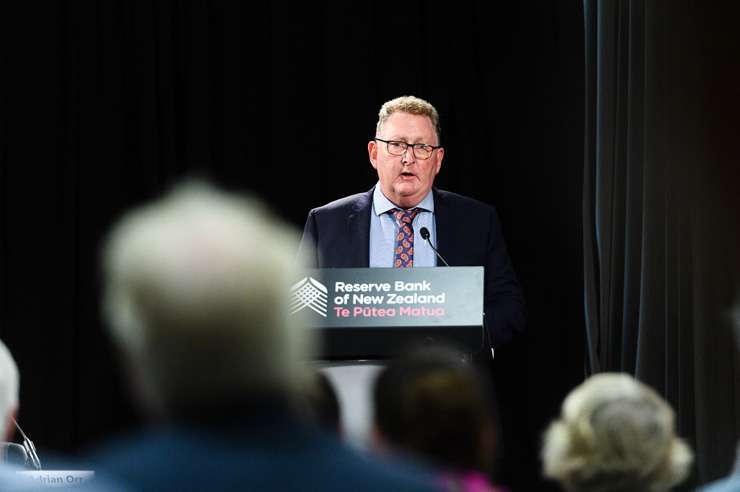Homeowners looking for a fast turnaround in house prices could be disappointed, with economists and market commentators telling OneRoof that prices won’t return to peak levels until 2024-2025, or even later.
The nationwide average property value hit a peak of $1.098 million in February last year, but has since fallen more than 12% ($140,000) to $958,000, and although the rate of decline is slowing, the latest OneRoof-Valocity house price figures suggest it hasn't quite reached the bottom yet.
The impact of the housing market downturn has varied across the country. West Coast property values are still climbing while some unlucky homeowners have seen values fall below pre-Covid levels.
The region worst affected by the slump is Wellington, with the average property value there down 23% ($267,000) since reaching an all-time high of $1.124m in March last year.
Start your property search
Auckland’s average property value is down 17.2% ($272,000) to $1.308m while market conditions in Canterbury have not been as harsh, with the region's average property value down only 5.4% ($43,000) to $755,000 since hitting a peak of almost $800,000 in June 2022.
Experts interviewed by OneRoof say there are too many variables for even the very best crystal ball gazer to pick when the market will next peak, and at what level.
ANZ chief economist Sharon Zollner believes house prices won’t pick up anytime soon. “We only forecast out to the end of 2025, at which point we are forecasting house prices to still be 16% below their peaks,” she said.
She said an upswing in net migration – currently running at “very strong levels” – could encourage a quicker uptick in prices, but tougher economic conditions and recessionary pressures could prolong the recovery.
“The main downside risk would be a harder landing for the economy than expected, with an associated larger increase in unemployment.”
Read more:
- LVR rule changes: Will they end the housing market’s deep freeze?
- Revealed: The NZ suburbs where every property seller is making a profit
- Mortgagee sale: ‘Mystery’ house sells for $836,000 – more than $100K above RV
James Wilson, head of valuations at Valocity, expects to see prices to stay flat for a year or more before climbing again. “In April 2024, we will probably be talking about seeing signs of 2% to 3% growth nationwide, and maybe a few sub markets beneath that ticking around that five 6% mark.”
Even after house prices turn, there could be a considerable lag before they return to the lofty heights of late 2021. Wilson said the post-Covid boom, where the nationwide average property value jumped more than 40% within a short period of time, was fuelled by ultra-low interest rates and the removal lending restrictions, conditions that are unlikely to be repeated. “Money was incredibly cheap post-Covid, the cheapest you're probably going to see,” he said.

ANZ chief economist Sharon Zollner expects house prices at the end of 2025 to be 16% below peak levels. Photo / Dean Purcell
He said the speed of the market turnaround would depend on a variety of factors, including cuts to the Official Cash Rate and investors returning to the market in large numbers. “When they do re-enter, expect to see a wee bit of a surge in those markets that have been slow,” Wilson said
Markets such as Auckland and Wellington, which have fallen hard and fast, could take longer to climb back to peak levels, perhaps three to four years. “The point to make here is that it won't just be that every market starts moving the same way at the same time at the same rate. We're going to see more sub market variation than perhaps ever before.”
Ray White chief economist Nerida Conisbee said a return to post-Covid peaks by late 2024 was not out of the question. “I don’t think that’s unrealistic if you look at how quickly Australia has turned around,” she said.
Australia’s housing market did not rise as fast and as high as New Zealand’s during the post-Covid boom but prices there are starting to show signs of a recovery. “Population growth is strong in Australia, rental markets are expensive, mining is doing well, all leading to increased housing demand,” she said.
Conisbee said the outcome of New Zealand’s general election would have an impact on the time-frame for a revival in property prices, as would the future of interest rates. OCR rises are not really making much of a dent in inflation, but at some point they will.”

The Reserve Bank of New Zealand Governor, Adrian Orr, in February. The bank has pushed up the cash rate from a record low of 0.25% to 5.25% in less than two years. Photo / Getty Images
Bayleys head of insights Chris Farhi is picking 2025 as a likely point in time when house prices will find their way back to 2021 levels. “Historically, forecasters have a really hard time trying to predict house prices but if you look at the trajectory of the New Zealand house price index in the 20 years to 2020, and pull that trend forward we would hit 2021 peak prices around mid-2025,” he said.
“It took around four years for prices to recover from their big drop post GFC. That was quite different circumstances because high levels of unemployment were the driver for the drop, whereas this time the main driver is the rise in interest rates.”
Farhi expects to see property markets come back to life when mortgage interest rates start to fall. “The other two things that are interesting are we've got the return to positive migration, which was definitely not the case during the pandemic, and then we've also got reasonable levels of wage inflation.”
He said there were wildcards to consider as well: “[Surging wage inflation] would probably inject a lot of life into house prices, as we've seen in some other countries. The other [wildcard] scenario would be material changes to the rules of the market, potentially in terms of foreign buyers and or property investments.”
- Click here to find properties for sale


















































































